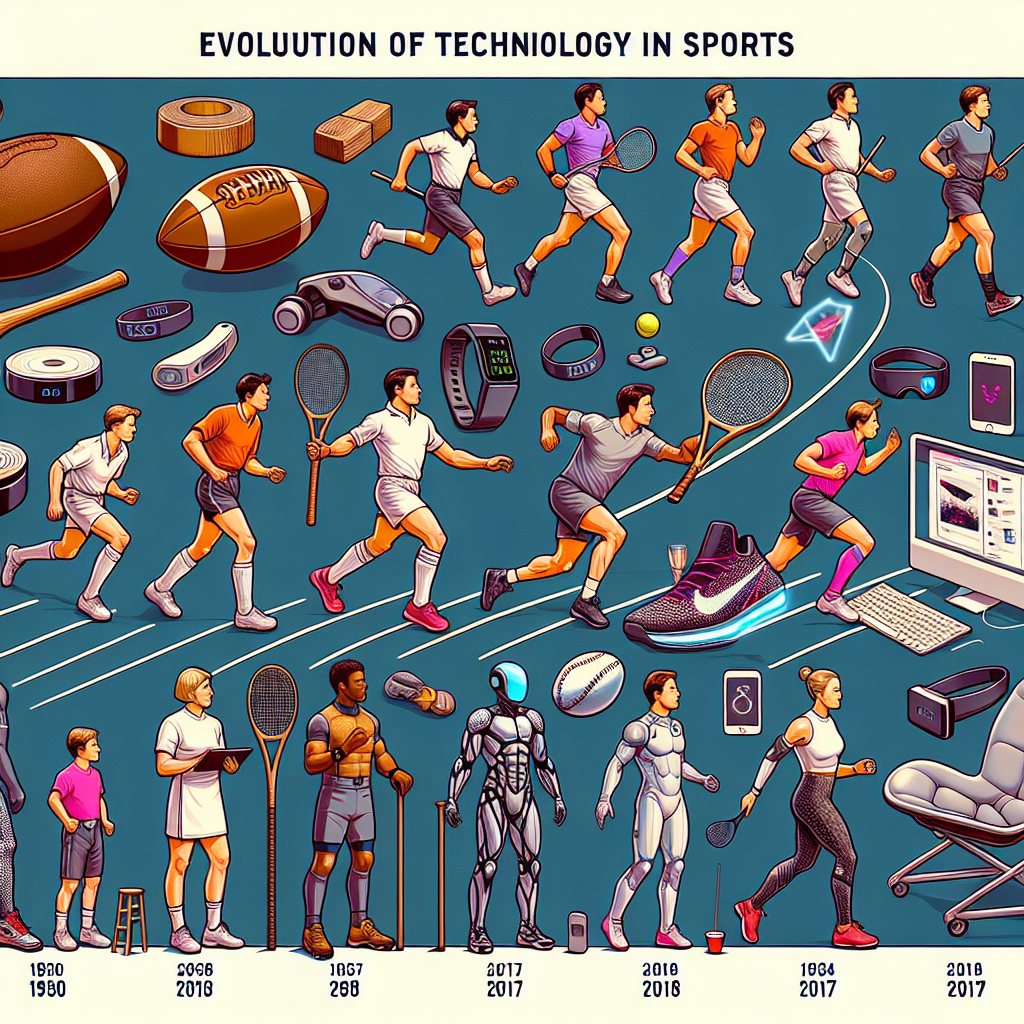The Evolution of Technology in Sports: Changing the Game
In the grand arena of athletic competition, where the roar of the crowd echoes through the stadium and the spirit of human endeavor reaches its zenith, technology has steadily marched alongside, transforming sports in myriad ways. From the earliest days of rudimentary tools to the cutting-edge innovations of today, the evolution of technology in sports has not only altered how games are played and officiated but also redefined the fan experience and athlete performance. Join us as we delve into this remarkable journey.
Early Innovations: Setting the Stage
The interplay between technology and sports began with simple yet groundbreaking inventions. Early instances include the creation of standardized equipment, like the introduction of the rubber bladder for the first modern soccer ball in the 19th century. These early advances laid the groundwork for a more organized and regulated approach to sporting events.
The Rise of Broadcast Media: Reaching the Masses
The 20th century witnessed a seismic shift with the advent of radio and television broadcasting. For the first time, millions could experience the thrill of live sports from their living rooms. The 1936 Berlin Olympics, broadcast live to television screens, marked a pivotal moment, igniting the global phenomenon of sports media. This technological leap not only expanded the reach of sports but also brought in lucrative advertising revenues, fundamentally changing the economics of sports.
Digital Data and Analytics: The Dawn of Precision
As we moved into the digital age, the infusion of data and analytics into sports became ubiquitous. Baseball, long seen as the quintessential American pastime, saw the early implementation of sabermetrics in the 1970s. This revolutionary approach utilized statistical analysis to evaluate player performance and game strategies. Michael Lewis’s 2003 book, "Moneyball," highlighted how the Oakland Athletics used such data-driven strategies to compete against teams with much larger budgets—an inspiring testament to the power of analytics.
Today, data analytics tools are indispensable across all major sports. Advanced metrics in basketball track everything from player efficiency to shot trajectory, while in soccer, GPS tracking devices monitor players’ movements, stamina, and work rate during matches. These data points provide coaches with unprecedented insights, leading to more informed decision-making and enhanced player performance.
Wearable Technology: Enhancing Performance and Health
Wearable technology represents one of the most exciting recent trends in sports technology. From smartwatches that track heart rates and other vital statistics to sophisticated garments that monitor muscle activity, wearables are transforming how athletes train and compete. Companies like Fitbit, Garmin, and Whoop are at the forefront, providing athletes with real-time data that can lead to performance optimization and injury prevention.
One standout example is the Catapult Sports wearable system, widely used in professional soccer. It tracks metrics such as distance covered, speed, and impact of collisions, helping coaches manage training loads and reduce injury risks. Such data-driven insights have become essential tools in modern sports science.
Instant Replay and VAR: Revolutionizing Officiating
One of the more contentious technological advancements in recent years has been the use of instant replay and Video Assistant Referee (VAR) systems. First introduced in American football and cricket, these technologies have since permeated other sports, including soccer and basketball. Instant replay allows officials to review and correct decisions in real time, thus ensuring greater accuracy and fairness in officiating.
While critics argue that these systems can disrupt the flow of the game and are not always infallible, the general consensus is that they have significantly reduced human error—a vital aspect in high-stakes environments where a single decision can alter the course of history.
Enhancing Fan Engagement: A Digital Renaissance
No discussion of technology in sports would be complete without acknowledging its impact on the fan experience. Augmented Reality (AR) and Virtual Reality (VR) technologies are offering fans immersive experiences that bring them closer to the action. AR applications let fans view real-time stats and player information through their smartphones, while VR is making it possible to "attend" games from the comfort of one’s home.
In addition, social media platforms have become powerful tools for fan engagement, allowing teams and athletes to build robust, interactive communities. Apps like Twitter, Instagram, and TikTok give fans a behind-the-scenes look and constant updates, thereby transforming passive viewers into active participants.
The Future: Beyond Imagination
As we look ahead, the possibilities for technology in sports seem boundless. Artificial Intelligence (AI) is making strides in predictive analytics, potentially revolutionizing scouting and game strategy. Robotics and automation are expected to play a role in training, injury rehabilitation, and even in creating more realistic simulation environments.
Blockchain technology could revolutionize ticketing, merchandise authenticity, and even athlete contracts, adding layers of security and transparency. Meanwhile, biotechnology advancements might one day offer methods to naturally enhance athlete performance and longevity, challenging ethical lines and sparking debates about the essence of fair competition.
Conclusion
From the humblest beginnings to the dazzling innovations of today, the relationship between technology and sports continues to grow more intertwined and complex. This evolution has touched every aspect of the game—from how sports are played and managed to how they are consumed and cherished by fans. As technology marches forward, one thing remains certain: the game will never be the same, and the world of sports will continue to be an exhilarating spectacle of human achievement and technological marvel.


